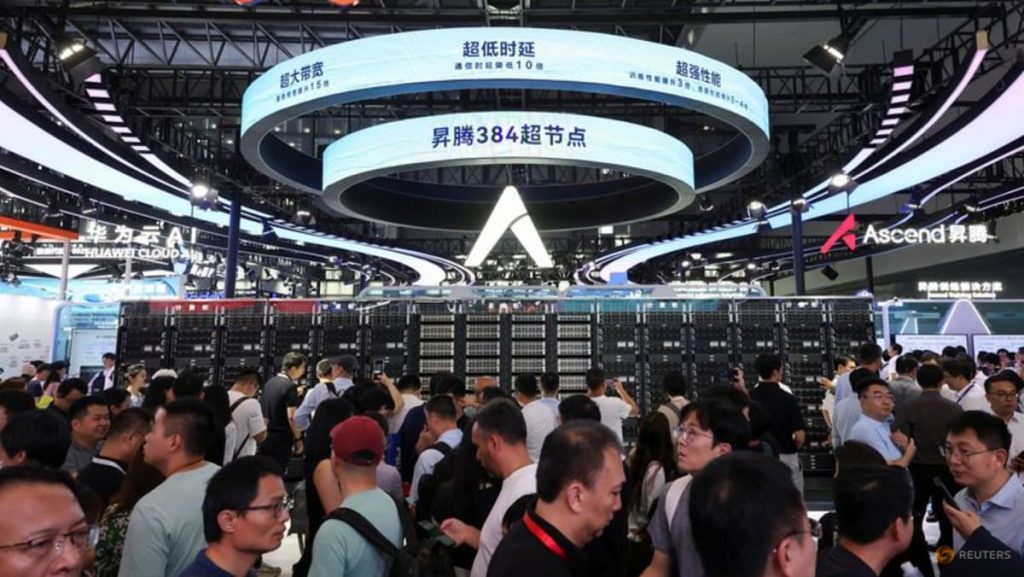Huawei Technologies unveiled hardware that it claimed could deliver world-class computing power without using Nvidia’s advanced chips, in a breakthrough that could potentially free the supply chokehold that constrains China’s aspirations in artificial intelligence.
The Shenzhen-based telecoms equipment giant said it had developed the “world’s most powerful” supernode computing cluster using local chipmaking processes, providing a boost to the country’s self-reliance in AI computing and underpinning Beijing’s toughening stance towards Nvidia.
“Huawei is seeking to build a ‘supernode + cluster’ computing solution using chip manufacturing processes available in China to meet the growing compute needs,” Xu Zhijun, Huawei’s deputy chairman and rotating chairman, said at the company’s annual Connect Conference in Shanghai.
Xu also disclosed Huawei’s plans to launch upgraded Ascend AI chips over the next three years, including the Ascend 950PR in the first quarter of 2026, in a timetable that runs in parallel with AI chips from Nvidia and AMD.
Xu’s statement comes as Beijing is pressing its tech giants to stop buying the chips that Nvidia tailor-made for China, which were designed to comply with US export restrictions.
On Beijing’s new stance, Nvidia CEO Jensen Huang said on Wednesday (Sep 17) that he was “disappointed with what I see, but they have larger agendas to work out between China and the United States, and I’m patient about it”.
The US-sanctioned Huawei is playing a leading role in finding solutions that can empower China’s AI ambitions without relying on technologies from the US.
Supernode refers to a high-performance cluster unit that aggregates a group of AI accelerators using ultra-fast interconnects.
On Thursday, Huawei introduced the Atlas 950 SuperPoD and Atlas 960 SuperPoD, which can support up to 8,192 and 15,488 of Huawei’s in-house Ascend processors, respectively.
The company said the systems lead globally in terms of processor scale, total computing power, memory capacity and interconnect bandwidth.
“Computing power was the key to artificial intelligence in the past, and it will remain so in the future – especially for China’s AI development,” Xu said in the speech.
Huawei also announced the Atlas 950 SuperCluster and Atlas 960 SuperCluster, which can scale up to support between 500,000 and 1 million processors, making them the “largest AI compute clusters” in the world, the company said.
This article was first published on SCMP.


